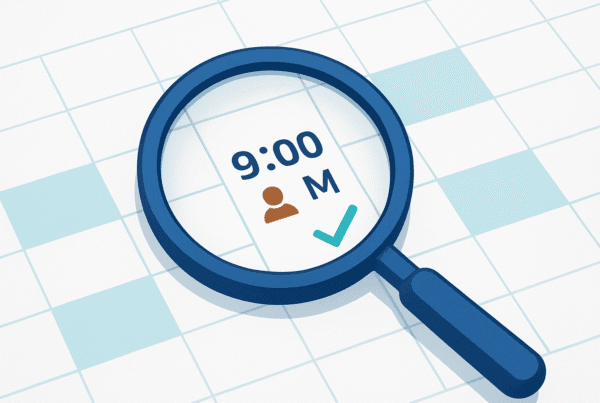Selling your Sports Medicine & Performance Therapy practice in Fort Lauderdale is a significant decision. The current environment presents a strong seller’s market, driven by unique local demographics and national industry growth. This guide provides insight into the market, key valuation drivers, and the sale process. Understanding these factors is the first step toward a successful transition that maximizes your outcome. Every practice sale has unique considerations that require personalized guidance.
Market Overview: A Prime Climate for Sellers
Your practice is situated at the intersection of powerful trends. On a national level, the sports medicine and physical therapy industry is seeing consistent growth. But the story in Fort Lauderdale is even more compelling.
High-Value Local Demand
Fort Lauderdale is not just a city; it’s a lifestyle. With a large, affluent population and a median age of 42.9, you serve a community that values and can afford to invest in an active, healthy life. From weekend athletes to retirees focused on maintaining mobility, your patient base is built into the fabric of the city. This creates a stable and predictable revenue base that is very attractive to potential buyers.
A Growing, Stable Industry
Beyond local demand, the broader U.S. outpatient therapy market is expanding. An increasing awareness of non-invasive treatment options and a growing number of active individuals are fueling this trend. For a buyer, this means your practice isn’t just a local success story. It is part of a durable, growing national industry.
Key Considerations for Your Practice
When buyers evaluate your practice, they look beyond the surface-level numbers. They are buying your future cash flow and growth potential. Here are three areas they will focus on.
-
Your Unique Service Mix. Do you offer specialized treatments, performance therapy, or unique cash-pay services that set you apart from standard physical therapy clinics? A distinct, high-margin service offering is a major value driver.
-
Your Referral Network. A practice with a diversified and loyal referral network from local orthopedists, sports teams, or community groups is far less risky than one dependent on a single source. This demonstrates an established position in the community.
-
Your Payer Contracts. Buyers will perform a deep dive on your payer mix and reimbursement rates. Strong, in-network contracts with favorable terms are a sign of a well-managed and financially stable operation.
Market Activity: Consolidation Creates Opportunity
The outpatient therapy market has historically been made up of many independent practices. That is changing quickly. Understanding this shift is key to timing your sale correctly.
Strategic Buyers and Private Equity are Active
Larger therapy chains and healthcare systems are looking to expand their footprint in desirable locations like Fort Lauderdale. They acquire established practices to gain market share instantly. At the same time, private equity firms see the stability and growth potential in musculoskeletal care. They are actively investing in practices to build larger platforms.
This activity creates a competitive environment for high-quality practices. More buyers competing for your practice can lead to better valuations and more favorable deal terms for you. Timing your practice sale correctly can be the difference between average and premium valuations.
The Four Stages of the Sale Process
Selling your practice is a structured process, not a single event. While every deal is unique, the journey typically follows four main stages.
-
Preparation and Valuation. This is the foundational stage where you organize your financial and operational documents. We help you establish a credible valuation based on normalized earnings, not just a simple formula. Proper preparation here prevents surprises later.
-
Confidential Marketing. Your practice is presented to a curated list of qualified buyers under strict confidentiality. We manage this process to create a competitive dynamic without alerting your staff or the public.
-
Navigating Due Diligence. The chosen buyer will conduct a thorough review of your finances, operations, and legal standing. This is often the most demanding phase, where our preparation pays off by ensuring a smooth and efficient review.
-
Finalizing the Transaction. The final stage involves negotiating the definitive purchase agreement and planning the transition. Our role is to ensure the legal terms align with the financial goals agreed upon.
How is a Sports Medicine Practice Valued?
Your practice’s value is more than just its annual revenue. Sophisticated buyers use a metric called Adjusted EBITDA (Earnings Before Interest, Taxes, Depreciation, and Amortization) to determine its true profitability. This figure is then multiplied by a number the “multiple” that reflects your practice’s risk and growth potential.
We start by normalizing your financials to find your true Adjusted EBITDA, adding back one-time costs or owner-specific expenses. Then, we determine the right multiple. A practice that is less dependent on the owner and has clear growth paths will command a higher multiple.
Here s how key factors can influence your valuation multiple:
| Factor | Lower Multiple | Higher Multiple |
|---|---|---|
| Provider Model | Fully Owner-Reliant | Associate-Driven |
| Growth Profile | Stagnant or Declining | Consistent Year-Over-Year Growth |
| Patient Sources | One Dominant Referral Source | Diverse Referral Network |
| EBITDA Scale | Under $500K | Over $1M |
A comprehensive valuation is the foundation of a successful practice transition strategy.
Post-Sale Considerations: Planning Your Next Chapter
The day the deal closes is a beginning, not just an end. How you structure the sale and plan for the transition period has a major impact on your final proceeds and personal satisfaction. Thinking about these factors early is critical.
Your Role After the Sale
Most buyers will want you to stay on for a transition period, which could range from a few months to a few years. Negotiating the terms of this role, including your compensation and responsibilities, is a key part of the deal structure. It ensures a smooth handover for patients and staff.
Structuring Your Payout
Not all of the purchase price may be paid in cash at closing. Buyers may propose an “earnout,” where a portion of the payment is tied to the practice hitting future performance goals. Another common structure is “rollover equity,” where you retain a minority stake in the new, larger company. This can give you a second, often larger, payout when the new company is sold again.
Protecting Your Legacy and Staff
A key concern for most owners is the well-being of their team and the continuation of their practice’s culture. The right buyer will value your staff and see them as a critical asset. We help you find a partner whose vision aligns with yours, ensuring your legacy is protected. Your specific goals and timeline should drive your practice transition strategy.
Frequently Asked Questions
What makes Fort Lauderdale a strong market for selling a Sports Medicine & Performance Therapy practice?
Fort Lauderdale has a high-value local demand due to its large, affluent population with a median age of 42.9 who value an active, healthy lifestyle. This creates a stable revenue base. Additionally, the national outpatient therapy market is growing, making local practices part of a durable and expanding industry.
What key factors do buyers focus on when evaluating a Sports Medicine practice for sale?
Buyers look at your unique service mix, referral network, and payer contracts. Specialized treatments or high-margin cash-pay services, a diversified loyal referral network, and strong in-network payer contracts indicate a well-managed and financially stable practice, thus increasing its value.
How is a Sports Medicine practice in Fort Lauderdale typically valued?
Valuation is based on Adjusted EBITDA (Earnings Before Interest, Taxes, Depreciation, and Amortization), which reflects true profitability. This is multiplied by a multiple that considers risk and growth potential. Factors influencing the multiple include provider model, growth profile, patient referral diversity, and EBITDA scale.
What are the typical stages in the process of selling a Sports Medicine practice?
There are four main stages: 1) Preparation and Valuation where financials are organized and a credible valuation established; 2) Confidential Marketing to qualified buyers; 3) Navigating Due Diligence involving thorough review of finances and operations; 4) Finalizing the Transaction including negotiating purchase agreements and planning transition.
What post-sale considerations should sellers of Sports Medicine & Performance Therapy practices keep in mind?
Sellers often negotiate staying on for a transition period with agreed responsibilities and compensation. Sale payout may include cash, earnouts, or rollover equity for future gains. Protecting the legacy by finding a buyer aligned with the practice culture and caring for staff is also critical for a smooth transition and personal satisfaction.



